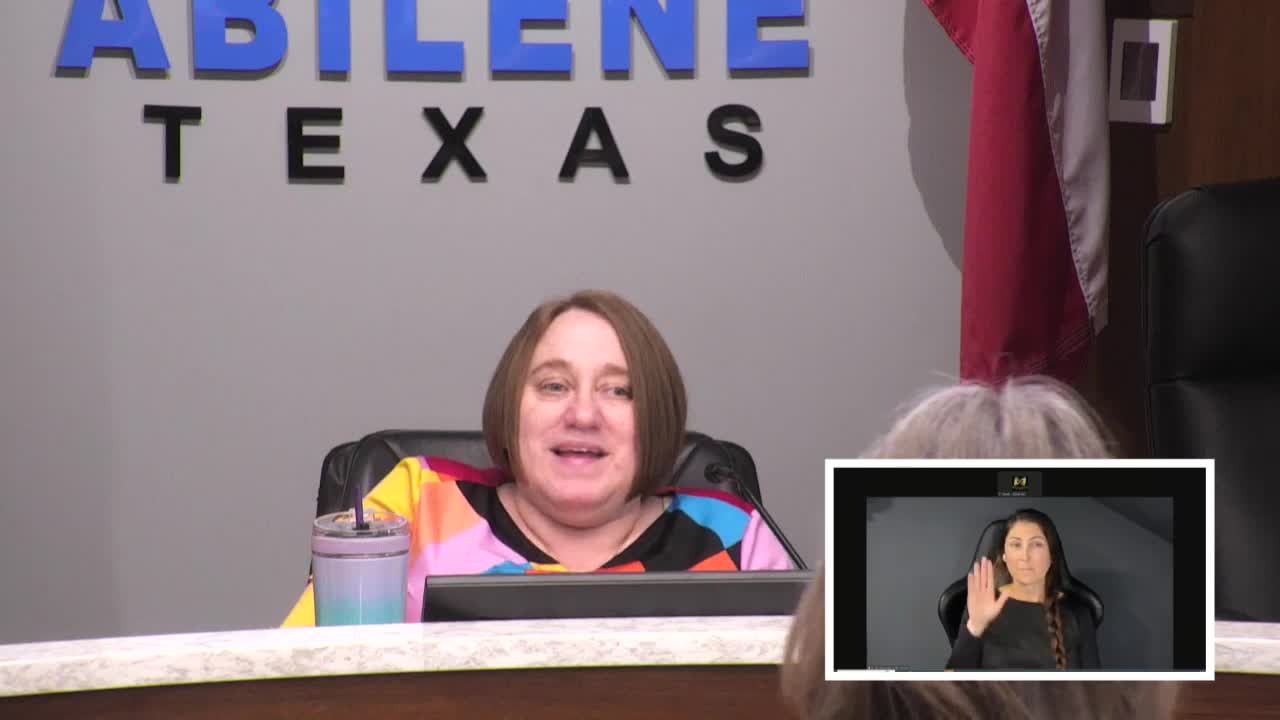CityLink GM outlines paratransit limits, payment options and staffing challenges
Get AI-powered insights, summaries, and transcripts
Subscribe
Summary
CityLink general manager told the Mayor's Advisory Board about paratransit application denials, a minimum $20 diminishing-balance requirement, limited ability to accept debit/credit payments today, a $3 on-call day pass microtransit service, high driver turnover and an FTA on-time target of roughly 75% for ADA-required trips.
Lauren Stevens, general manager of CityLink, briefed the Mayor—s Advisory Board for People with Disabilities on transit operations, payment options and staffing for Abilene—s ADA paratransit and microtransit services.
Stevens said application denials can reflect missing documentation or failure to meet eligibility under ADA-based regulations for paratransit. "Typically, the denials of application could go between and, Amanda's the 1 that takes care of those. So they may not have all of the information in there," Stevens said.
On payment and accounts, Stevens described the service's diminishing-balance (DIB) system and a current minimum reload and use rule. "The diminishing balance process has changed... the least amount that you can put on is 20," she said. CityLink staff said that riders who rely on the DIB must keep a positive balance on the card; attempting to draw on an empty DIB account has led to negative balances and occasional unpaid rides in the past.
Stevens said CityLink already offers app-based payments for ZipZone microtransit but that extending debit/credit acceptance to paratransit and fixed route would involve processing costs. "It's certainly a possibility to look at extending that to paratransit and even fixed route as well," she said, and offered to return to the board with a staff proposal in about six months.
Microtransit and on-call service CityLink operates a ZIP-zone microtransit model and an "on-call" service that covers a defined southwest and southeast polygon of the city. The on-call product is same-day within its polygon and, Stevens said, charges a $3 day pass (all-day within the polygon); typical hours mirror fixed-route service with pickups starting about 6:15 a.m. and final drop-offs near 5:45 p.m.
On-time performance and operational constraints Board members raised punctuality concerns; a board member cited a 69% on-time figure and asked whether that is acceptable. Stevens and staff explained Federal Transit Administration reporting expectations for ADA-required paratransit trips (referred to in the meeting as the agency's "BA 1" standard) and said the FTA-desired target is roughly 75% or higher for those required trips. CityLink staff emphasized they cannot prioritize BA 1 trips over others beyond federal rules and that BA 2 (service outside the required area) is provided only upon availability.
Staffing and driver recruitment Stevens described high turnover in transit driver recruitment and the city's emphasis on hiring drivers with appropriate safety and customer-service skills. She explained that training includes a day of ride-alongs that leads several applicants to decide the work is not a fit. Stevens said CityLink is pursuing several operational changes, including a consultant-driven project expected to reach city council in May or June to expand on-call/microtransit options.
Why it matters: reliability, payment methods and driver availability directly affect whether riders with disabilities can attend medical appointments, work and daily tasks. The board asked CityLink to investigate card-based payment options and to return with a proposal on feasibility and costs.
